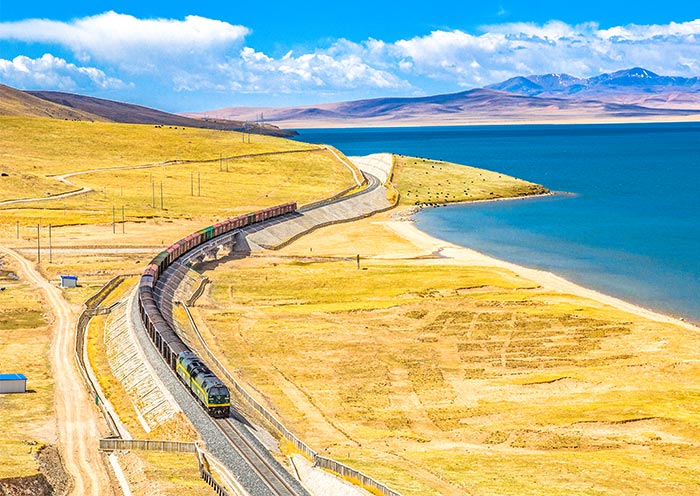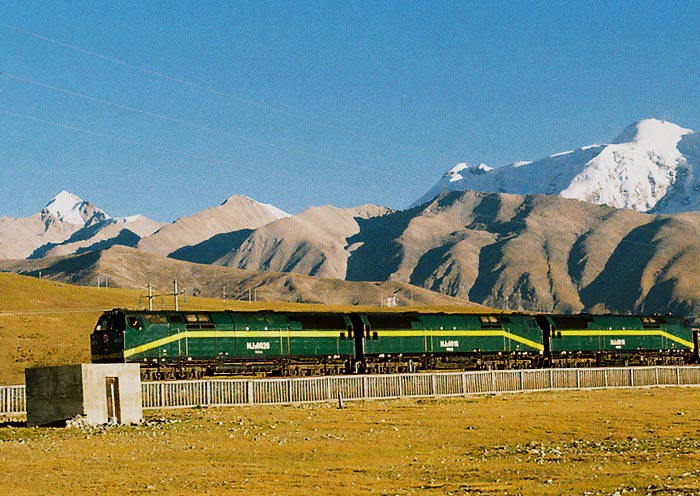Xining to Lhasa Train: Distance & Map
-
 Shortest travel time:
Shortest travel time: -
 Longest travel time:
Longest travel time: -
 Lowest train ticket cost:
Lowest train ticket cost: -
 Avg. daily departures:
Avg. daily departures: -
 Earliest departure:
Earliest departure: -
 Latest departure:
Latest departure:
The distance from Xining to Lhasa by train is approximately 1972 kilometers (or about 1225 miles). It's a long journey for about 22 hours, but the stunning landscapes along the route make it a worthwhile experience.

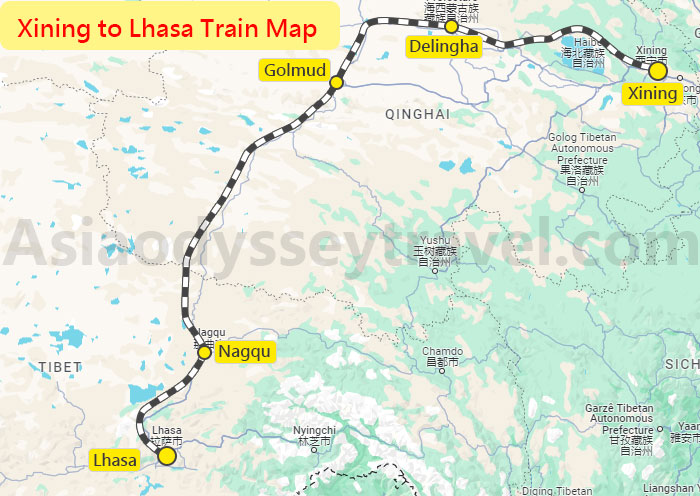
Xining to Lhasa Train Time Schedule
There are 5 trains from Xining to Lhasa every day. These include one direct train and four trains that originate from other cities (Beijing, Shanghai, Guangzhou, Chengdu, Chongqing) but stop at Xining. During the peak season (June to August), there will be more direct trains.
 Xining(西宁) - Lhasa(拉萨)
Xining(西宁) - Lhasa(拉萨)  results
results
- Train No.
- Departure / Train Staiton
- Duration
- Seat Type
- Price
- Availability
Contact Us to Book the Train Schedules
Lhasa to Xining Train Schedule
If it's difficult to purchase train tickets from Xining to Lhasa during the peak season, you might consider taking the train from Lhasa to Xining instead. Below is the train schedule from Lhasa to Xining.
| Train No. | Time | Duration | Frequency |
|---|---|---|---|
| Z8982 | 9:25 - 6:25 | 21 h | Daily |
| Z166 | 11:50 - 9:15 | 21 h 25 min | Daily |
| Z266 | 12:40 - 10:20 | 21 h 40 min | Daily |
| Z22 | 15:50 - 13:10 | 21 h 20 min | Daily |
| Z224 | 19:00 - 16:30 | 21 h 30 min | Every Other Day |
| Z324 | 19:00 - 16:30 | 21 h 30 min | Every Other Day |
(Updated in December 2023)
Xining to Lhasa Train Price & Facilities (soft sleeper)
| Class | Facilities | Price (CNY) |
|---|---|---|
| Hard Seat | 3+2, the most affordable option, no sleeping facilities for hard seat passengers. | ¥224 |
| Hard Sleeper | open compartments accommodate six passengers, with two bunks on each side, stacked three high - lower, middle, and upper. | ¥495 |
| Soft Sleeper | compartment with a door for privacy and contains four beds, two on each side, stacked as an upper and lower bunk. | ¥781 |
The train also has a dining car that serves meals and snacks, and packaged food and drinks can often be purchased from cart vendors who periodically walk down the aisles. Oxygen is supplied throughout the train to help passengers adjust to the high altitude, and first aid kits are available for emergencies.


Xining to Lhasa Train Altitude - Not That High
The train journey from Xining to Lhasa is a remarkable experience that takes you through the stunning landscapes of the Tibetan Plateau. As you traverse this route, you will encounter varying altitudes, each offering unique perspectives and breathtaking views. Here is an altitude overview of the Xining to Lhasa train journey:
- Xining (2,275 meters / 7,464 feet):
The journey begins in Xining, the capital city of Qinghai Province. At an altitude of 2,275 meters, Xining serves as a starting point for the Qinghai-Tibet Railway and is located on the eastern edge of the Tibetan Plateau.
- Golmud (2,809 meters / 9,216 feet):
As the train continues its ascent, it reaches Golmud, a major city in Qinghai Province. At an altitude of 2,809 meters, Golmud is situated on the outskirts of the Tibetan Plateau, offering beautiful views of the surrounding high-altitude landscapes.
- Tanggula Pass (5,072 meters / 16,640 feet):
One of the highlights of the Xining to Lhasa train journey is crossing the Tanggula Pass, which is the highest point on the Qinghai-Tibet Railway. At an astonishing altitude of 5,072 meters, this pass offers breathtaking panoramic views of the snow-capped mountains and vast Tibetan Plateau.
- Nagqu (4,500 meters / 14,764 feet):
After crossing the Tanggula Pass, the train descends slightly to Nagqu, a town located at an altitude of approximately 4,500 meters. Nagqu is known for its grasslands, nomadic culture, and traditional Tibetan way of life.
- Lhasa (3,656 meters / 11,995 feet):
The train journey culminates in Lhasa, the capital city of the Tibet Autonomous Region. At an altitude of 3,656 meters, Lhasa is situated in the valley of the Kyichu River and is renowned for its rich Tibetan Buddhist heritage, including iconic landmarks like the Potala Palace and Jokhang Temple.
It's important to note that traveling to high altitudes can pose challenges for some individuals due to the potential effects of altitude sickness. It is advisable to consult with a healthcare professional before embarking on the Xining to Lhasa train journey, especially if you have any underlying health conditions. Additionally, it's recommended to acclimatize gradually, stay hydrated, and listen to your body during the journey to ensure a safe and enjoyable experience.
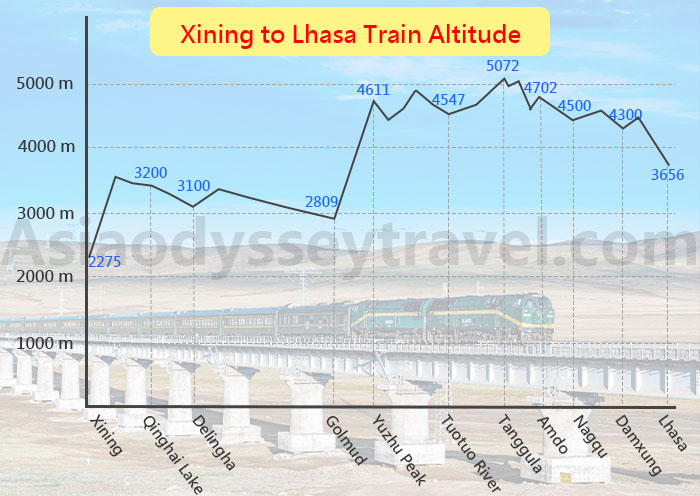

How to Book & Get a Xining to Lhasa Train Ticket
1. Online Booking - Convenient
Many online platforms allow you to book Tibet train tickets in China. Websites such as Trip.com (formerly known as Ctrip), China Railway's official website, and other online travel agencies, typically offer this service. After booking online, you'll usually need to collect the physical tickets at the train station with your passport. Please note that websites may vary in terms of English language support. However, it may be difficult to successfully purchase sleeper tickets during the peak season.
2. Through a Travel Agency - Highly Recommended for Foreigners
Many travel agencies can book the train tickets for you, which can be especially helpful if you're not fluent in Chinese or familiar with the process. They can also help with travel plans, accommodation, and provide guidance for travel in Tibet. However, they may usually charge a service fee for this service.
Please note that train tickets in China often become available 30 days before departure for online bookings and 28 days before departure for in-person sales at train stations. It's recommended to book your tickets as early as possible, especially during peak travel seasons.
3. At The Train Station - Not Recommended
You can buy the tickets directly at the ticket window at the train station. Keep in mind that English might not be widely spoken at the stations, and during peak times, there may be long lines. Always have your passport with you, as it's required for purchasing tickets. However, this might not be an ideal option during peak travel times as tickets can sell out quickly.
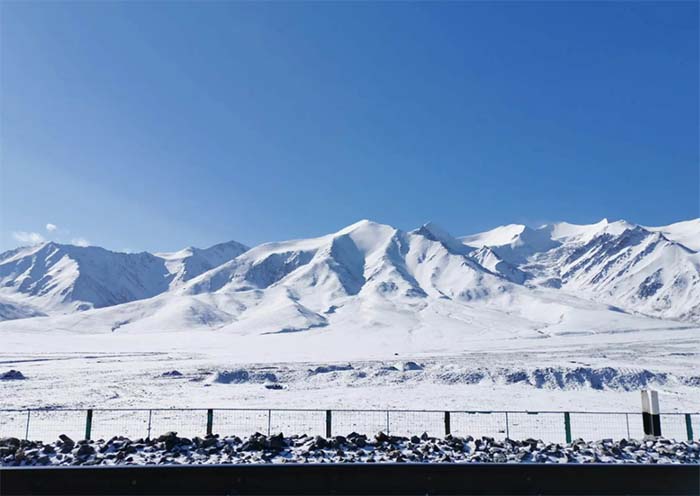

Why to Choose Xining to Lhasa Train
The Shortest Train Journey to Lhasa within 20 hours
At approximately 20 hours, the trip from Xining to Lhasa is the fastest train route to Tibet, providing an efficient transportation choice for those eager to start their Tibetan adventure. This efficient option only requires you to spend one night on the train, making it a convenient choice for travelers who want to minimize their travel time while still enjoying the unique experience of a night on the Tibetan plateau.
Higher Ticket Availability from Xining to Lhasa
The demand for train tickets from Xining to Lhasa is the largest among all the other trains going to Tibet. With five trains daily from Xining to Lhasa, including one originating train and others passing through, there is a wider range of options making it easier to secure a ticket. During peak travel season (June to August), additional trains originate from Xining, further increasing the chances of getting a ticket and offering more flexibility in your travel plans.
Optimized Travel Schedule
The Xining-Lhasa train (Z9811) departs in the evening and arrives in Lhasa by the following evening, providing ample daylight hours to appreciate the stunning plateau landscapes between Golmud and Lhasa. This schedule maximizes your exposure to the breathtaking Qinghai-Tibet Railway views during daylight hours, making the journey as memorable as the destination itself.
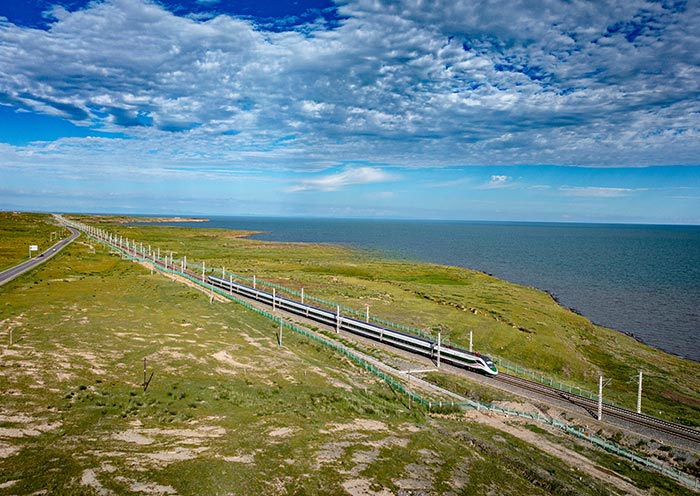
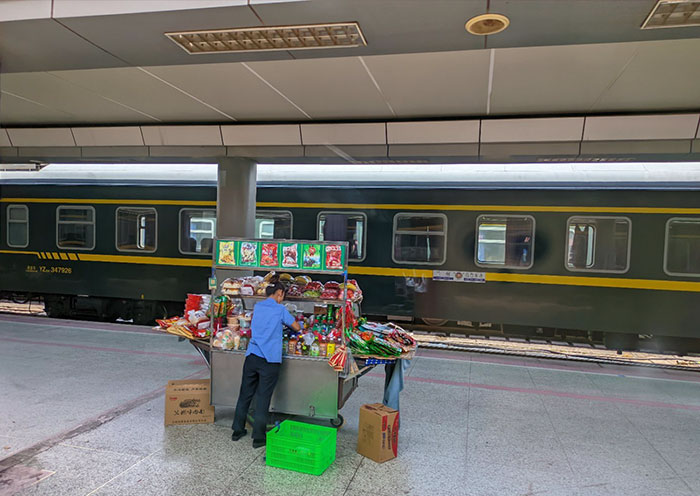
Better Acclimatization to the Altitude
Starting from an elevation of 2,200 meters in Xining, the gradual altitude increase during the train journey allows passengers to adapt progressively to Tibet's high altitude, reducing the risk of altitude sickness. This benefit makes the train ride a healthier option for sensitive travelers.
No Train Transfers Required
Trains from mainland cities to Lhasa typically require a transfer in Xining to an oxygen-supplied train, involving a time-consuming process of moving luggage. However, taking a train that originates from Xining bypasses this inconvenience. These trains are prepared for high altitudes, eliminating the need for the transfer, and thus simplifying your journey to Tibet.
Tourist Attractions in Xining
As the east gate of the Qinghai-Tibet Plateau, there are many top attractions in Xining. You can visit the Dongguan Mosque (东关清真寺), a significant Islamic site that offers a unique blend of Chinese and Islamic architecture. The Kumbum Monastery (塔尔寺), or Ta'er Temple, is another must-see for its cultural significance and intricate Tibetan art. Additionally, the breathtaking Qinghai Lake (青海湖), China's largest saltwater lake, is within a day's excursion from Xining and offers stunning beauty and birdwatching opportunities. Exploring these attractions before your train journey can enrich your overall Tibetan experience.


Xining to Tibet Train Station
Departure: How to Get to Xining Railway Station
Xining Railway Station, the starting point of the Qinghai-Tibet Railway, is located at Huzhu Road, Chengdong District, Xining City, Qinghai Province. To reach the railway station, public buses and taxis are readily available.
From Xining Caojiabao Airport: You can take a taxi or the airport shuttle bus to Xining Railway Station. The journey typically takes around 30-40 minutes by taxi and about an hour by shuttle bus.
From Qinghai Lake: It's roughly a two-hour drive from Qinghai Lake to Xining Railway Station. You can hire a private car service or take a long-distance bus to Xining City first and then catch a taxi or local bus to the station.
From Kumbum Monastery (Ta'er Temple): The Monastery is around 25 kilometers from the railway station. You can reach the station by taxi, which typically takes about 30 minutes, or by bus, which takes around an hour.
From Xining City Center: If you're in the city center, you can take a short taxi ride to the station. The journey shouldn't take more than 20 minutes by taxi or 30 minutes by bus, depending on traffic.
Arrival: How to Get around from Lhasa Railway Station
Lhasa Railway Station is situated in the Liuwu New Area, southwest of Lhasa city, approximately a 20-minute drive away from the city center. You can reach downtown Lhasa via taxi or ride the Lhasa Railway Station Shuttle Bus, which operates every 30 minutes. Some hotels also offer pick-up services, so it's worth checking with your accommodation in advance. Additionally, if you join our Tibet Group Tour, we offer complimentary pick-up services from the station.
Check detailes about How to Exit Lhasa Railway Station to Meet Guide? >>
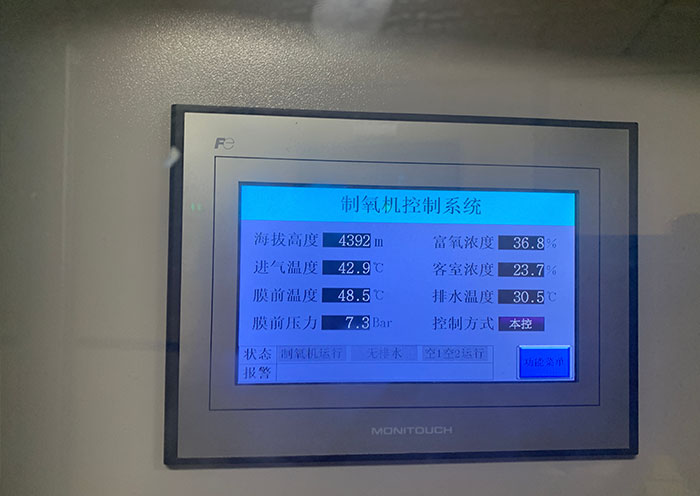

What to See During Your Xining to Lhasa Train Tour
The train journey from Xining to Lhasa spans around 20 hours. The initial segment from Xining to Golmud, taking approximately 6.5 hours, showcases landscapes of Qinghai Lake, the Qaidam Basin, desert Gobi, and salt lake vistas. The subsequent stretch from Golmud to Lhasa, about 13.5 hours long, offers a panorama of the high plateau scenery, including snow-capped mountains, lakes, meadows, deserts, mudflats, and wildlife. This section is considered the most scenic part of the Qinghai-Tibet Railway, presenting different colors with the changing seasons.
Qinghai Lake: China's largest inland and saltwater lake, famed for its mesmerizing beauty and diverse birdlife. The train journey offers a unique perspective as it passes along the northern shore of the lake.
Gobi Desert: The train journey traverses the Qaidam Basin, providing a unique look at the expansive Gobi Desert landscape, punctuated by an array of wind turbines harnessing the power of the desert winds.
Yuzhu Peak: One of the major peaks of the Kunlun Mountains, known for its spectacular glaciers and snow-capped summit.
Hoh Xil Uninhabited Area: A UNESCO World Heritage Site located on the Qinghai-Tibet Plateau, recognized for its high-altitude landscapes and rich biodiversity.
Tuotuo River: Often considered the source of the Yangtze River, it offers beautiful riverside views and is surrounded by vast plains and distant mountains.
Tanggula Mountains: The highest point along the train route, marking the boundary between Qinghai and Tibet, offering breathtaking views of the lofty snow-capped peaks.
Check more details about Qinghai-Tibet Railway Scenery>>
However, what you can see on this journey also depends on the specific train you take. For instance, trains Z322/Z223 originating from Chengdu/Chongqing travel the Xining to the Golmud section during the day and the Golmud to the Lhasa section at night. In contrast, the Z8991 train departing from Xining follows the opposite schedule. Therefore, your choice of train plays a crucial role in determining the landscapes you'll experience during your trip.
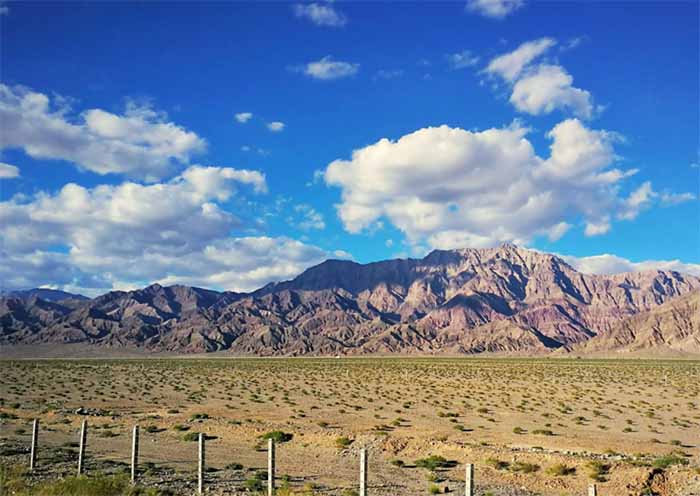
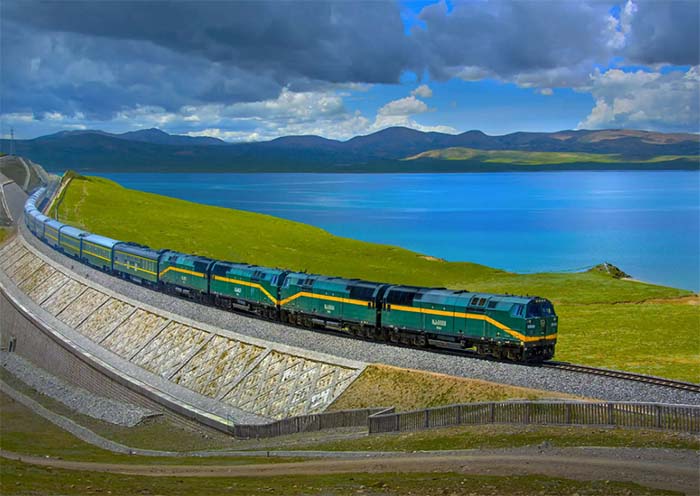
Insider Tips for Your Xining to Lhasa Train Ride
Tibet Travel Permit: Ensure you have the necessary Tibet Travel Permit, as it's checked before you board the train.
Train Schedule: Try to choose a train that departs from Xining in the afternoon or evening. This way, you'll get to see more of the plateau's scenery during daylight hours.
Soft Sleeper: If soft sleepers are available, it's recommended to buy one. They offer more comfort, which can help alleviate discomfort and symptoms of altitude sickness during the journey.
Window Cleaning: Before the train departs, find an opportunity to clean the window on your side if possible. A clean window will provide a clearer view of the stunning landscapes and make photography easier.
Bathing: There are no bathing facilities on the train, and it's also recommended not to bathe on the day you arrive in Lhasa. Therefore, it's a good idea to take a thorough bath before you depart from Xining.
How to Plan a Xining Lhasa Train Tour
A 11-day itinerary is generally suitable for a Xining to Lhasa train tour, which includes exploring Xining, taking a train journey, and experiencing the classic Tibet tour.
Day 1-3: Spend the first three days exploring Xining and its surroundings. Visit the Dongguan Mosque, Ta'er Monastery, and Qinghai Lake. On the third day, board the train to Lhasa.
Day 4: Spend the fourth day enjoying the scenic train journey on the Qinghai-Tibet Railway. Upon arrival in Lhasa, check into your hotel and rest.
Day 5-6: Take two days to acclimate to the altitude in Lhasa and explore the city. Must-see sites include the Potala Palace, Jokhang Temple, and Barkhor Street.
Day 8-11: Spend the next four days on a round trip to Everest Base Camp. You can take in the stunning high-altitude landscapes and get a close-up view of the world's highest peak, Mount Everest.
Day 12: On the 11th day, check out from your hotel in Lhasa and proceed to your next destination.


Take Tibet Train Tours with Asia Odyssey Travel
As a seasoned travel agency specializing in Tibet travel for over 10 years, Asia Odyssey Travel has established offices and local teams worldwide, including major Chinese cities conveniently connected to Lhasa, Tibet (Xizang), by train and flights. Expanding tour destinations in China provides a Panoramic Tibet Travel Experience with diverse optionsThat's why we have meticulously crafted Tibet Train Tours starting from various major Chinese cities, ensuring an immersive, all-inclusive journey with a wide range of choices.
You can opt for our Tibet Train Tour starting from Beijing, Chengdu, Shanghai, Xian, Xining, Chongqing, Hong Kong and more cities in China or even from Bhutan or Nepal!
There is no need to worry about booking train tickets to Tibet, language barriers, or anything you can think of, as we have you covered every step of the way! If you prefer to travel at your own pace Asia Odyssey Travel will always map out the Best Travel Plan for you, so you can simply hop on the train and start your Grand Tour of Tibet!

